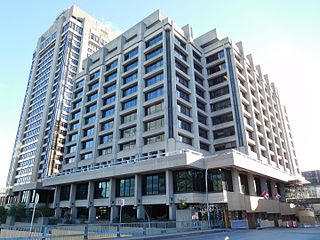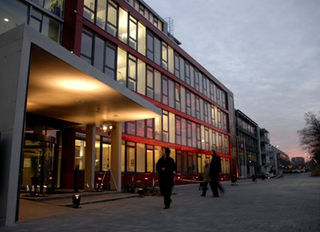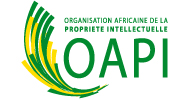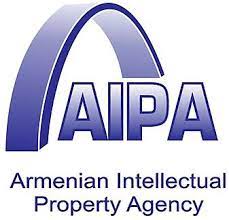
Intellectual property (IP) is a category of property that includes intangible creations of the human intellect. There are many types of intellectual property, and some countries recognize more than others. The best-known types are patents, copyrights, trademarks, and trade secrets. The modern concept of intellectual property developed in England in the 17th and 18th centuries. The term "intellectual property" began to be used in the 19th century, though it was not until the late 20th century that intellectual property became commonplace in most of the world's legal systems.

A patent is a type of intellectual property that gives its owner the legal right to exclude others from making, using, or selling an invention for a limited period of time in exchange for publishing an enabling disclosure of the invention. In most countries, patent rights fall under private law and the patent holder must sue someone infringing the patent in order to enforce their rights.

The World Intellectual Property Organization is one of the 15 specialized agencies of the United Nations (UN). Pursuant to the 1967 Convention Establishing the World Intellectual Property Organization, WIPO was created to promote and protect intellectual property (IP) across the world by cooperating with countries as well as international organizations. It began operations on 26 April 1970 when the convention entered into force. The current Director General is Singaporean Daren Tang, former head of the Intellectual Property Office of Singapore, who began his term on 1 October 2020.
A patent attorney is an attorney who has the specialized qualifications necessary for representing clients in obtaining patents and acting in all matters and procedures relating to patent law and practice, such as filing patent applications and oppositions to granted patents.
A trademark attorney or trade mark attorney or agent is a person who is qualified to act in matters involving trademark law and practice and provide legal advice on trade mark and design matters.
A patent office is a governmental or intergovernmental organization which controls the issue of patents. In other words, "patent offices are government bodies that may grant a patent or reject the patent application based on whether the application fulfils the requirements for patentability."

Industrial property is one of two subsets of intellectual property, it takes a range of forms, including patents for inventions, industrial designs, trademarks, service marks, layout-designs of integrated circuits, commercial names and designations, geographical indications and protection against unfair competition. In some cases, aspects of an intellectual creation, although present, are less clearly defined. The object of industrial property consists of signs conveying information, in particular to consumers, regarding products and services offered on the market. Protection is directed against unauthorized use of such signs that could mislead consumers, and against misleading practices in general.

The Canadian Intellectual Property Office is responsible for the administration and processing of the greater part of intellectual property (IP) in Canada. CIPO's areas of activity include patents, trademarks, copyright, industrial designs and integrated circuit topographies. Structurally, CIPO functions as a special operating agency (SOA) under Innovation, Science and Economic Development Canada. CIPO is based in Gatineau, Quebec, part of the National Capital Region. CIPO’s current interim Chief Executive Officer is Konstantinos Georgaras.
Intellectual property rights (IPRs) have been acknowledged and protected in China since 1980. China has acceded to the major international conventions on protection of rights to intellectual property. Domestically, protection of intellectual property law has also been established by government legislation, administrative regulations, and decrees in the areas of trademark, copyright, and patent.
World Intellectual Property Day is observed annually on April 26. The event was established by the World Intellectual Property Organization (WIPO) in 2000 to "raise awareness of how patents, copyright, trademarks and designs impact on daily life" and "to celebrate creativity, and the contribution made by creators and innovators to the development of economies and societies across the globe". April 26 was chosen as the date for World Intellectual Property Day because it coincides with the date on which the Convention Establishing the World Intellectual Property Organization entered into force in 1970. World Intellectual Property Day is WIPO’s largest intellectual property (IP) public outreach campaign.
Intellectual property law in Romania has developed significantly in the period since the Romanian Revolution of 1989 because of the need to enforce various regional and international treaties and agreements, such as the Agreement on Trade-Related Aspects of Intellectual Property Rights (TRIPS), the European Directives on Biotechnological Inventions, on Trademarks and Geographical Indications, and on Supplementary protection certificates, the Trademark Law Treaty, the Patent Law Treaty, and the European Union regulation on the Community Trademark, and the need to harmonize domestic patent law with the European Patent Convention (EPC) and with the European Union.

The IP Federation is a United Kingdom industry intellectual property trade association. It was founded in 1920 as an industry organization that provides input representing its members' interests in the United Kingdom and international intellectual property rule-making process. It celebrated its centenary on 23 April 2020.

The Swiss Federal Institute of Intellectual Property (IPI), based in Bern, is an agency of the federal administration of Switzerland responsible for patents, trademarks, geographical indications, industrial designs and copyright.

The Organisation Africaine de la Propriété Intellectuelle or OAPI is an intellectual property organization, headquartered in Yaoundé, Cameroon. The organisation was created by Bangui Agreement of March 2, 1977. The Bangui Agreement was subsequently amended in 1999.
The Corporate Affairs and Intellectual Property Office (CAIPO) is a Barbadian governmental agency in charge of various aspects of industrial property right affairs including: patents, trademarks, and industrial designs. It is a division of the Ministry of Industry & International Business. The CAIPO office is located on Belmont Road, Saint Michael, Barbados. The country ranks as one of the top countries where the greatest number of foreign patents are legally based.

Iran is a member of the WIPO since 2001 and has acceded to several WIPO intellectual property treaties. Iran joined the Convention for the Protection of Industrial Property in 1959. In December 2003 Iran became a party to the Madrid Agreement and the Madrid Protocol for the International Registration of Marks. In 2005 Iran joined the Lisbon Agreement for the Protection of Appellations of Origin and their International Registration, which ensures the protection of geographical names associated with products. As at February 2008 Iran had yet to accede to The Hague Agreement for the Protection of Industrial Designs.
Gjorgji Filipov is a Macedonian diplomat. In 2014 he is the Ambassador of Macedonia in Vienna, Austria as well as Ambassador of Macedonia to Japan and Slovakia. He was founder and first director of the Macedonian State Office of Industrial property from. He holds a PhD in the field of Industrial Property. The title of the doctoral thesis was:"Industrial Property as an Indicator for Technological Development“.

The following outline is provided as an overview of and topical guide to patents:

The Intellectual Property Agency of Armenia (AIPA) is the patent office of Armenia. The agency works under the supervision of the Ministry of Economy of Armenia and is tasked with granting patent and IP address protections, trademarks, and copyrights for objects of industrial property, inventions and usage patterns, industrial design, and commercial and service marks, among others.







